Intro
Learn about 5 crucial liver function labs, including ALT, AST, and bilirubin tests, to assess liver health, detect liver damage, and diagnose liver diseases like hepatitis and cirrhosis, with expert insights on liver function and lab results interpretation.
The liver is a vital organ that plays a central role in maintaining the body's overall health. It performs a wide range of functions, including detoxification, protein synthesis, and the production of biochemicals necessary for digestion. Liver function labs are a set of tests used to assess the liver's condition and detect any potential problems. In this article, we will delve into the world of liver function labs, exploring their importance, types, and what the results can reveal about our health.
Liver function labs are crucial for identifying liver damage or disease, which can be caused by a variety of factors, including viral infections, alcohol abuse, and obesity. These tests can help healthcare providers diagnose and monitor liver conditions, such as hepatitis, cirrhosis, and liver cancer. By analyzing the results of liver function labs, healthcare providers can develop effective treatment plans and make informed decisions about patient care.
The importance of liver function labs cannot be overstated. Liver disease can be asymptomatic in its early stages, making it difficult to detect without proper testing. If left untreated, liver disease can lead to serious complications, including liver failure, which can be life-threatening. By conducting regular liver function labs, healthcare providers can identify potential problems early on, allowing for prompt intervention and preventing long-term damage.
Liver Function Tests
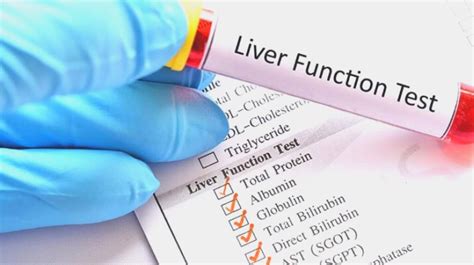
Liver function tests are a group of tests used to evaluate the liver's condition. These tests measure the levels of various enzymes, proteins, and other substances in the blood that are produced or cleared by the liver. The most common liver function tests include:
- Alanine transaminase (ALT)
- Aspartate transaminase (AST)
- Alkaline phosphatase (ALP)
- Gamma-glutamyl transferase (GGT)
- Bilirubin
These tests can help healthcare providers diagnose and monitor liver conditions, such as hepatitis, cirrhosis, and liver cancer.
ALT and AST Tests
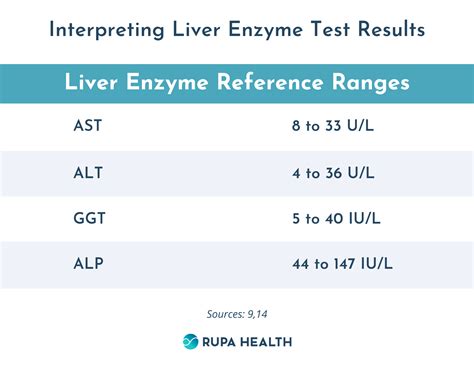
The ALT and AST tests measure the levels of these enzymes in the blood. Elevated levels of ALT and AST can indicate liver damage or disease. The ALT test is more specific to the liver, while the AST test can also detect damage to other organs, such as the heart and muscles.
ALP and GGT Tests
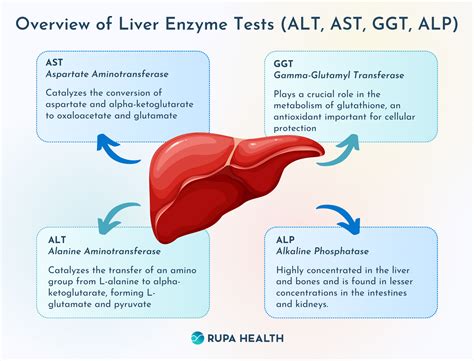
The ALP and GGT tests measure the levels of these enzymes in the blood. Elevated levels of ALP and GGT can indicate liver damage or disease, particularly in the bile ducts.
Bilirubin Test

The bilirubin test measures the level of bilirubin in the blood. Bilirubin is a yellow pigment produced during the breakdown of red blood cells. Elevated levels of bilirubin can indicate liver damage or disease, particularly in the liver's ability to remove bilirubin from the blood.
Interpreting Liver Function Lab Results
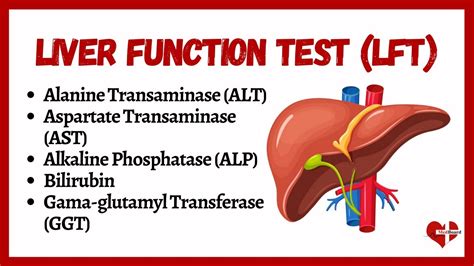
Interpreting liver function lab results can be complex and requires a healthcare provider's expertise. The results can indicate a range of conditions, from mild liver damage to severe liver disease. Healthcare providers consider the results of multiple tests, as well as the patient's medical history and physical examination, to make an accurate diagnosis.
Some common abnormal results include:
- Elevated liver enzymes (ALT, AST, ALP, and GGT)
- Elevated bilirubin levels
- Abnormal protein levels (albumin and globulin)
- Abnormal coagulation tests (PT and INR)
These abnormal results can indicate a range of conditions, including:
- Hepatitis
- Cirrhosis
- Liver cancer
- Fatty liver disease
- Liver failure
What to Expect During a Liver Function Lab Test
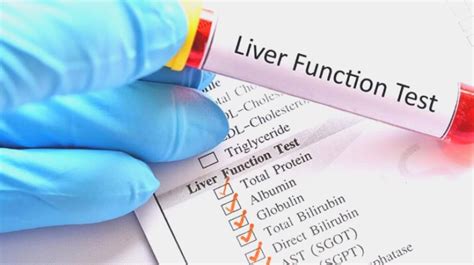
A liver function lab test typically involves a blood draw, which is a quick and relatively painless procedure. The blood sample is then sent to a laboratory for analysis. The results are usually available within a few days and are interpreted by a healthcare provider.
It's essential to follow the healthcare provider's instructions before and after the test, including:
- Fasting for 8-12 hours before the test
- Avoiding certain medications or supplements
- Informing the healthcare provider about any medical conditions or allergies
Liver Disease Prevention and Treatment
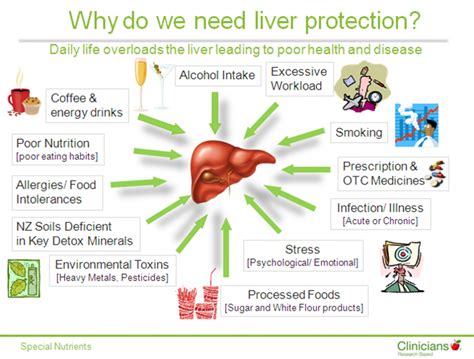
Preventing liver disease is crucial, and there are several ways to reduce the risk of developing liver conditions. These include:
- Practicing safe sex to reduce the risk of hepatitis B and C
- Getting vaccinated against hepatitis A and B
- Avoiding excessive alcohol consumption
- Maintaining a healthy weight to reduce the risk of fatty liver disease
- Avoiding exposure to toxins and chemicals
Treating liver disease depends on the underlying condition and may involve:
- Medications to reduce inflammation and prevent further damage
- Lifestyle changes, such as dietary modifications and exercise
- Surgery to remove damaged liver tissue or transplant a healthy liver
Liver Health and Nutrition

A healthy diet is essential for maintaining liver health. Foods that support liver health include:
- Leafy green vegetables (spinach, kale, and collard greens)
- Cruciferous vegetables (broccoli, cauliflower, and Brussels sprouts)
- Fatty fish (salmon, sardines, and tuna)
- Nuts and seeds (almonds, sunflower seeds, and pumpkin seeds)
- Whole grains (brown rice, quinoa, and whole-wheat bread)
Foods that can harm the liver include:
- Processed and packaged foods
- Sugary drinks and foods
- Fried foods and foods high in saturated and trans fats
- Foods high in salt and sodium
Conclusion and Next Steps

In conclusion, liver function labs are a crucial tool for assessing liver health and detecting potential problems. By understanding the different types of liver function tests and what the results can reveal, individuals can take proactive steps to maintain their liver health. If you have concerns about your liver health or have questions about liver function labs, consult with a healthcare provider.
We invite you to share your thoughts and experiences with liver function labs in the comments below. If you found this article informative, please share it with others who may benefit from this information.
What is the purpose of liver function labs?
+Liver function labs are used to assess the liver's condition and detect potential problems, such as liver damage or disease.
What are the common liver function tests?
+The common liver function tests include ALT, AST, ALP, GGT, and bilirubin.
How can I maintain my liver health?
+Maintaining a healthy diet, avoiding excessive alcohol consumption, and getting vaccinated against hepatitis A and B can help reduce the risk of liver disease.
